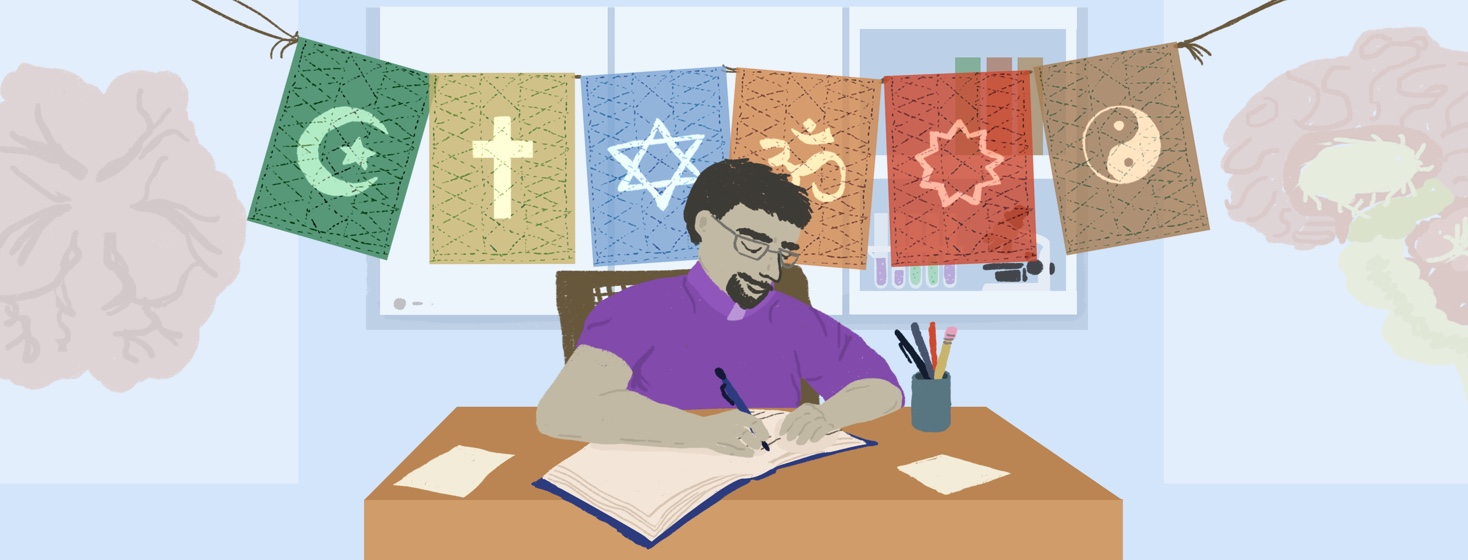Conversations with a Chaplain: A Chaplain’s Day-to-Day
Rev. Isaac Dusenbury is a chaplain at Duke University Hospital. He completed his chaplain residency at Duke University Hospital’s Surgical and Intensive Care Unit and graduated from the Divinity School of Duke University. Here he shares his experiences and learnings as a chaplain. This article was originally written and shared on our sister site, LungCancer.net.
Measuring a chaplain’s impact
Chaplains are ancillary and occupy liminal spaces within an institution; people aren’t necessarily coming to the hospital to see a chaplain, and our department is not focused on making the hospital money or responsible for positive patient outcomes like other departments/professions. For example, I’m not responsible for minimizing or diminishing a patient’s sadness in the same way an oncologist is responsible for minimizing or diminishing the size of a brain tumor. In the context of Duke Hospital, we keep track of how many visits we make and the number of calls to which we respond. We look for patterns and trends in an effort to discern how “needed” we are and how diligently and realistically we can and will meet those needs. We take strides to build strong relationships with the hospital staff and consider it to be of great importance that other medical professionals know who we are, what we do and can depend on our services when needed. Let’s say one unit of the hospital paged chaplain services a hundred times a month on average, then the next month that number fell to fifty. That would give our department pause and prompt us to re-evaluate.
Are chaplains involved in assisting with advance directives?
Chaplains are responsible for facilitating the completion of advanced directives. We are trained to go over the paperwork and to answer questions in a sensitive manner as they arise. It is a relatively common occurrence that after asking a Christian-identifying patient if they want to be an organ donor that they’ll respond with, “If I donate my organs will I still be resurrected?” Another popular question families will ask is, “If I pull the plug on my loved one, will that be considered murder in the eyes of God?” In light of such questions, the hospital has found it helpful to train chaplains on being the primary assisters regarding advanced directives rather than paging us every time someone asks a question rooted in some kind of religious belief, which would make an already long and difficult process even more so.
Helping people from all walks of life
Because I serve a hospital in North Carolina, the majority of the people I work with identify as Christian. However, I have worked with patients, families, and staff from a wide variety of traditions including but not limited to Wiccans, Druids, Native American Shamans, Hindus, and Muslims. Our department has many religious and spiritual resources to meet such needs. For instance, we have pre-packaged, bottled water taken from the Ganges River for our Hindu patients. We have our own library with many religious texts across a spectrum of traditions and translations that patients/families can request and borrow. We’re also able to get in touch will all kinds of clergy and religious leaders/representatives in the surrounding community who have volunteered their services. We coordinate with them to ensure patients and families have access to the kinds of rituals and services they need to express their faith.
Unrelenting support
In terms of illnesses, I feel like I’ve seen it all. There is no part of this 1,000 bed hospital that I have not visited. Duke is a research and teaching hospital, which means we get the worst of the worst. As a chaplain here, I have witnessed hundreds of people draw their last breath. I have sat in on some of the most medically and ethically complicated cases one could imagine. I have been present with countless families as they receive utterly devastating news time and time again. I have seen the many ways grief and loss can manifest themselves, from family members throwing furniture across the room to patients running out of the hospital in nothing but a gown. The list is long and chaplains are called to a variety of situations and circumstances. Anything is fair game.
Read the first part of this interview series in Conversations with a Chaplain: A Chaplain’s Role in Supportive Care.

Join the conversation